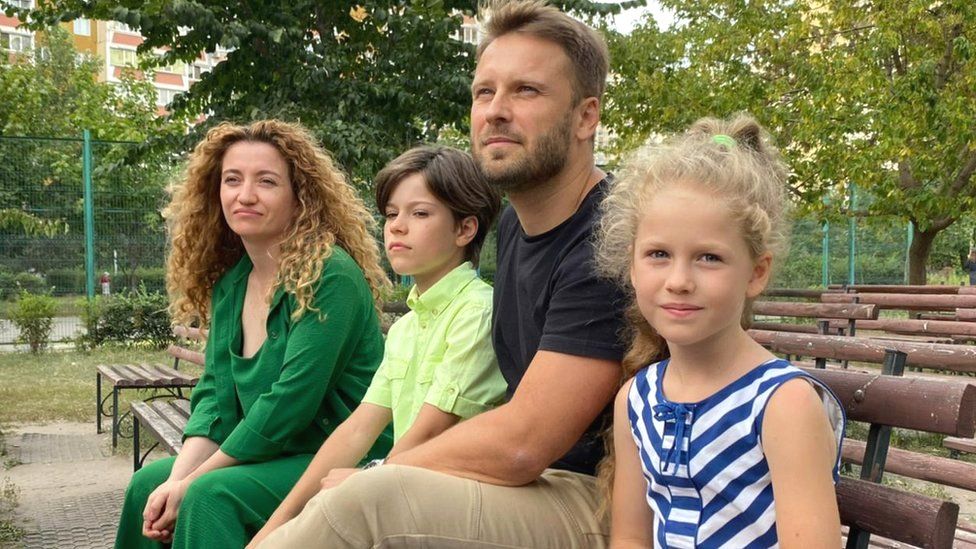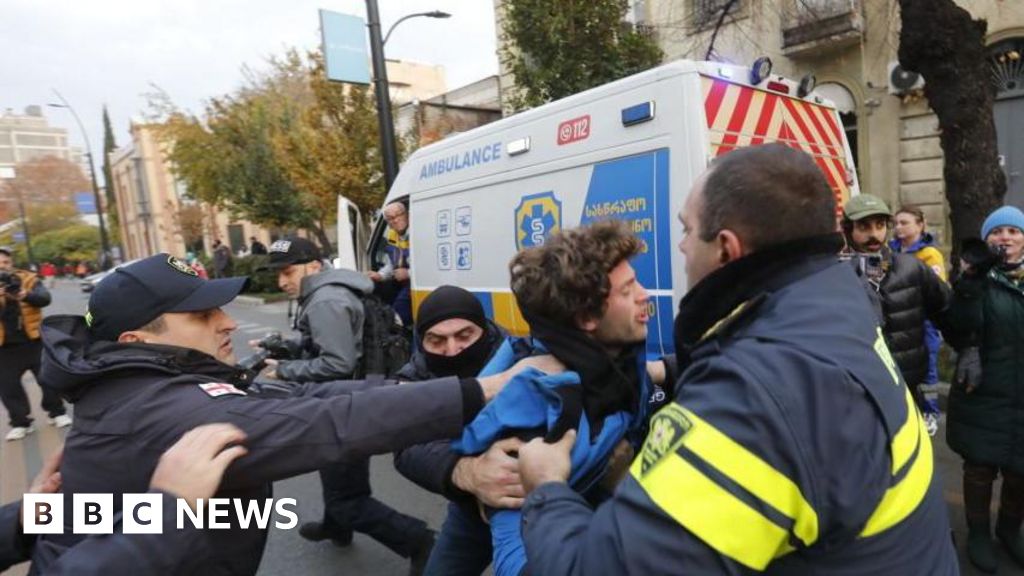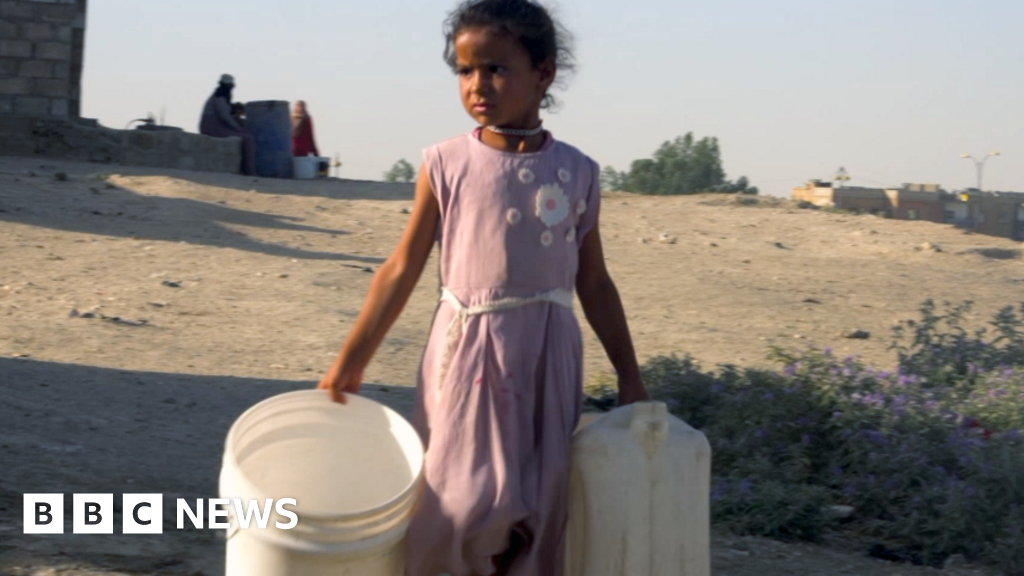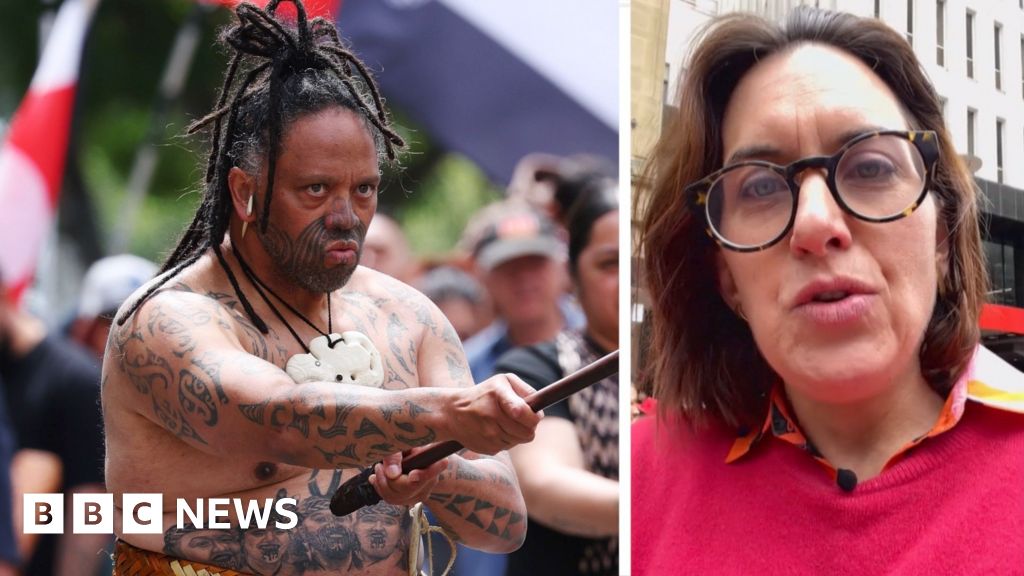ARTICLE AD BOX
By James Waterhouse
BBC Ukraine correspondent

From left to right: Olena, Andrii, Kostia, and Uliana. Olena says she does not want to fear her children attending class
"I'm more scared of the fact I'll have a new teacher than of the war," says Andrii, with a smile.
The 11-year-old is sat with his parents and his eight-year-old sister, Uliana, on a bench outside their apartment block in the Ukrainian capital Kyiv.
His mother, Olena, tells me: "We want a proper future for our children, and that depends on their education.
"We want them to have in-person communication with their peers, and not through a screen. We don't want to be afraid."
For many families, September brings normality, structure, and the chance to reconnect with friends as the new academic year begins.
This year, however, tens of thousands of people across Ukraine will be denied those comforts, with just 40% of schools able to fully reopen, according to local authorities.
Maryna (right) says her son Daniil now has trouble sleeping because of the war
Maryna's nine-year-old son, Daniil, has learning difficulties. She's desperate for him to return to the classroom as he struggles with speech. He is also finding it hard dealing with the trauma of this invasion.
"He would scream, 'Rockets! Rockets!'," his mother recalls. "He still doesn't sleep well. I shield him by embracing him and saying: 'Mommy's with you and she'll never leave you.'"
She stresses that Daniil needs his education. "Many speech therapists left the city, I don't know what schooling will look like and how they will rebuild this school. But we desperately need these specialists."
Schools must now have access to nearby bomb shelters that store food and water reserves
As for those facilities in territories occupied by invading forces, Western officials say families are being forced to bring their children to schools where they face being "re-programmed" by teachers brought in from Russia.
This will be the aim, they say, through a syllabus which portrays Ukraine - and Ukrainian - as not being real.
In the Kyiv region, it is a story of quarters. While 75% of schools are ready to welcome pupils back, only 25% want to do so.
On the grounds of Irpin Lyceum #3, the wounds of war are obvious.
Schools in this town, just outside the capital, are still numbered from when Ukraine was part of the Soviet Union.
Ironically, it is Moscow's attempts to pull the country back into its orbit which has left it as the shell it is today.
Some schools, like this one in Irpin, have visible scars from Russian shelling
A shallow crater pierces the playground's rubber tarmac. Shrapnel scars climb the walls, and almost every window is shattered.
When Russia invaded Ukraine on 24 February, this school found itself on the front line as Russian forces moved in on Kyiv.
Both invading and defending troops used it as a base, which is why it is thought to have been hit with more than 40 shells.
After the Ukrainian military forced a Russian retreat here and more than six months without its 2,000 students, only two year groups will be returning this term. The rest will be taught remotely.
When you walk in, you can see why.
Rooms in the school building have been destroyed and are unsafe to use
While many school buildings are in need of renovation that could take months to complete, local politicians are keen to show they have as much in place as possible to allow schooling to restart.
At the heart of this is a generation forever moulded by this attack on their country.

 2 years ago
22
2 years ago
22








 English (US)
English (US)